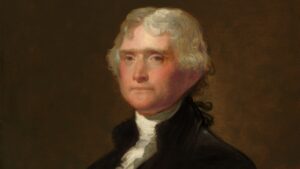Extreme Investor Network – Your Source for Personal Finance Insights
When it comes to managing money, even presidents face similar challenges as the rest of us. Before taking on the highest office in the land, they too are just like everyday Americans, trying to budget and grow their assets. The struggles they faced then continue to resonate today, making it harder for many to achieve the American Dream.
For example, Richard Nixon could attend college for $230 a year in 1930, equivalent to $8,000 today. Grover Cleveland could purchase a home near the White House for $21,500 in 1886, which would be around $700,000 today. These examples show the changing landscape of financial opportunities over time.
Many presidents displayed frugality in their personal finances. Calvin Coolidge was known for his thrifty nature, instilled by his father’s advice to save and allow money to compound. Even in the White House, he closely monitored expenses, showing the importance of financial discipline. Surprisingly, John F. Kennedy, despite coming from a wealthy background, was also mindful of costs throughout his life.
On the other hand, Thomas Jefferson, known for his lavish taste, was the biggest spender among presidents. Despite accruing significant debt, he strategically planned his estate to protect assets from creditors. Money, causing anxiety for everyone, was managed differently by each president, reflecting their early experiences and values.
Harry Truman’s financial struggles before the presidency contrasted his later success in saving and investing. Similarly, Herbert Hoover’s childhood experiences shaped his financial acumen, leading to significant wealth accumulation and charitable work. Post-presidential life also presented financial opportunities for presidents, with Gerald Ford paving the way for speaking engagements and board positions beyond traditional paths.
As personal finance remains a crucial aspect of everyone’s life, learning from the financial habits and experiences of presidents can provide valuable insights for managing wealth effectively. Stay tuned to Extreme Investor Network for more exclusive content on personal finance and investing strategies.

